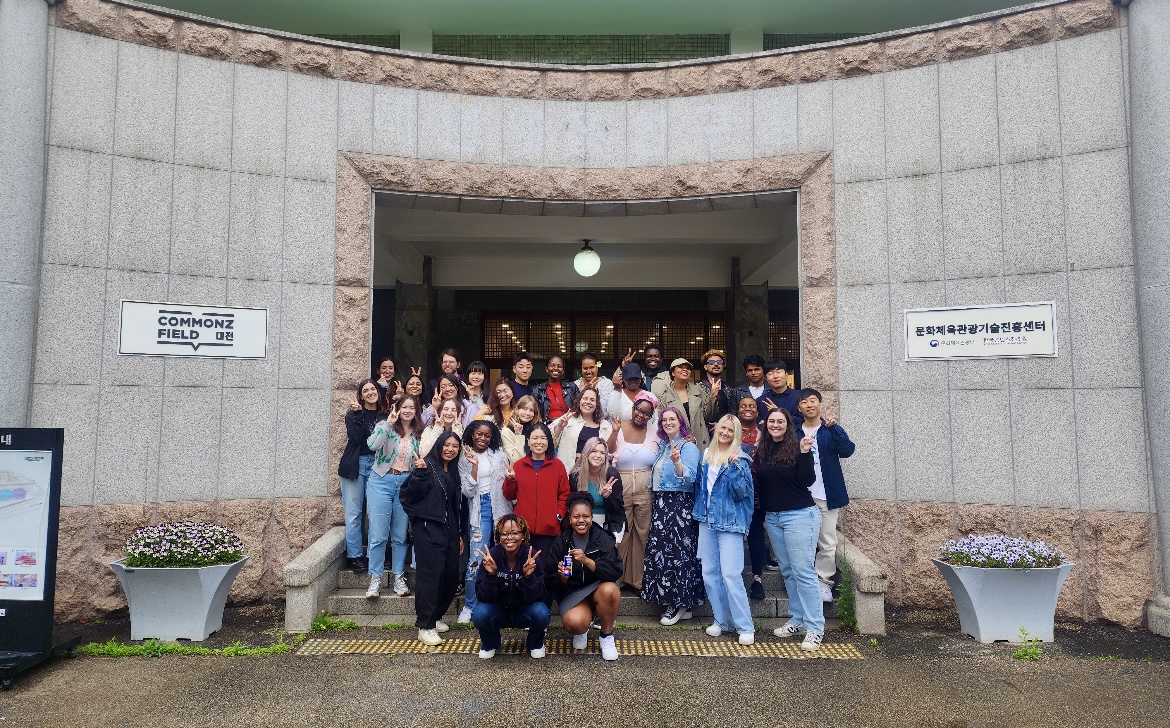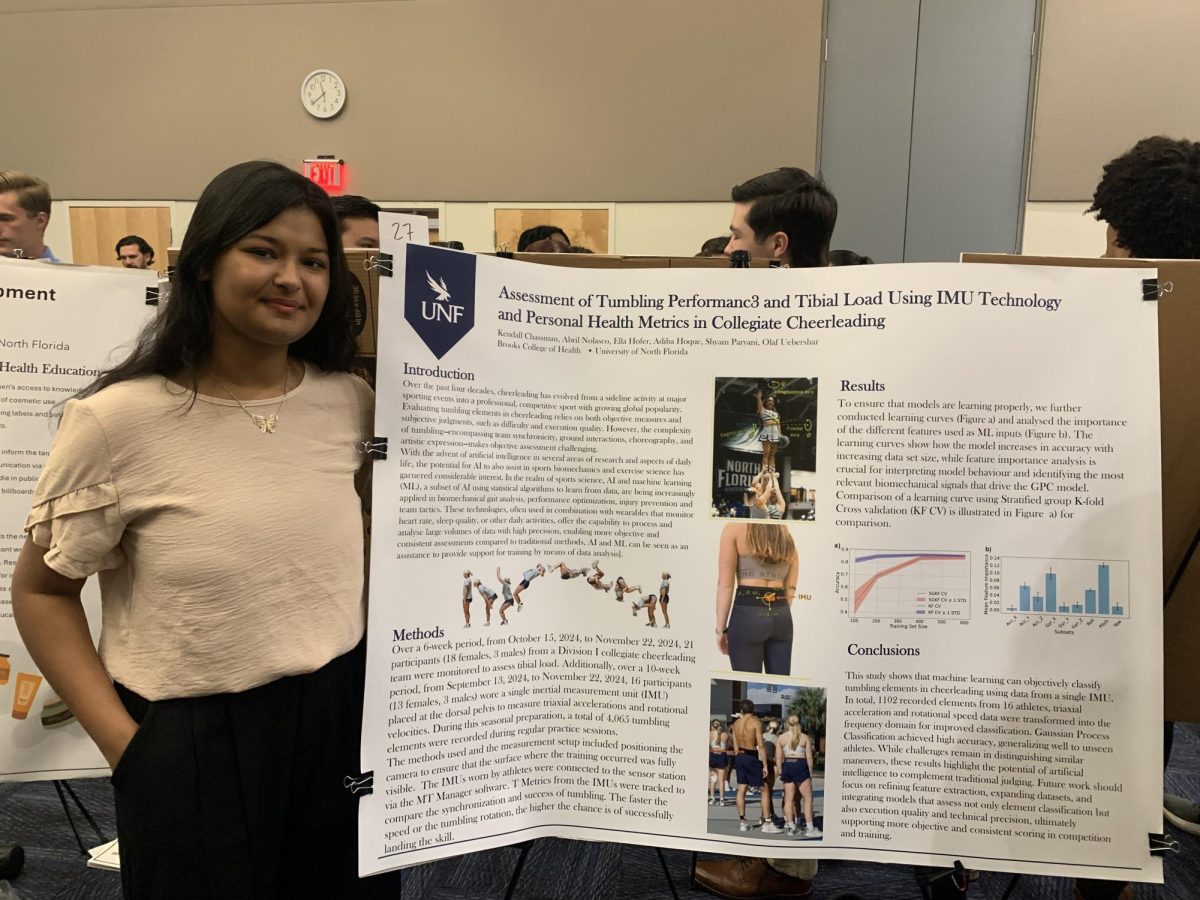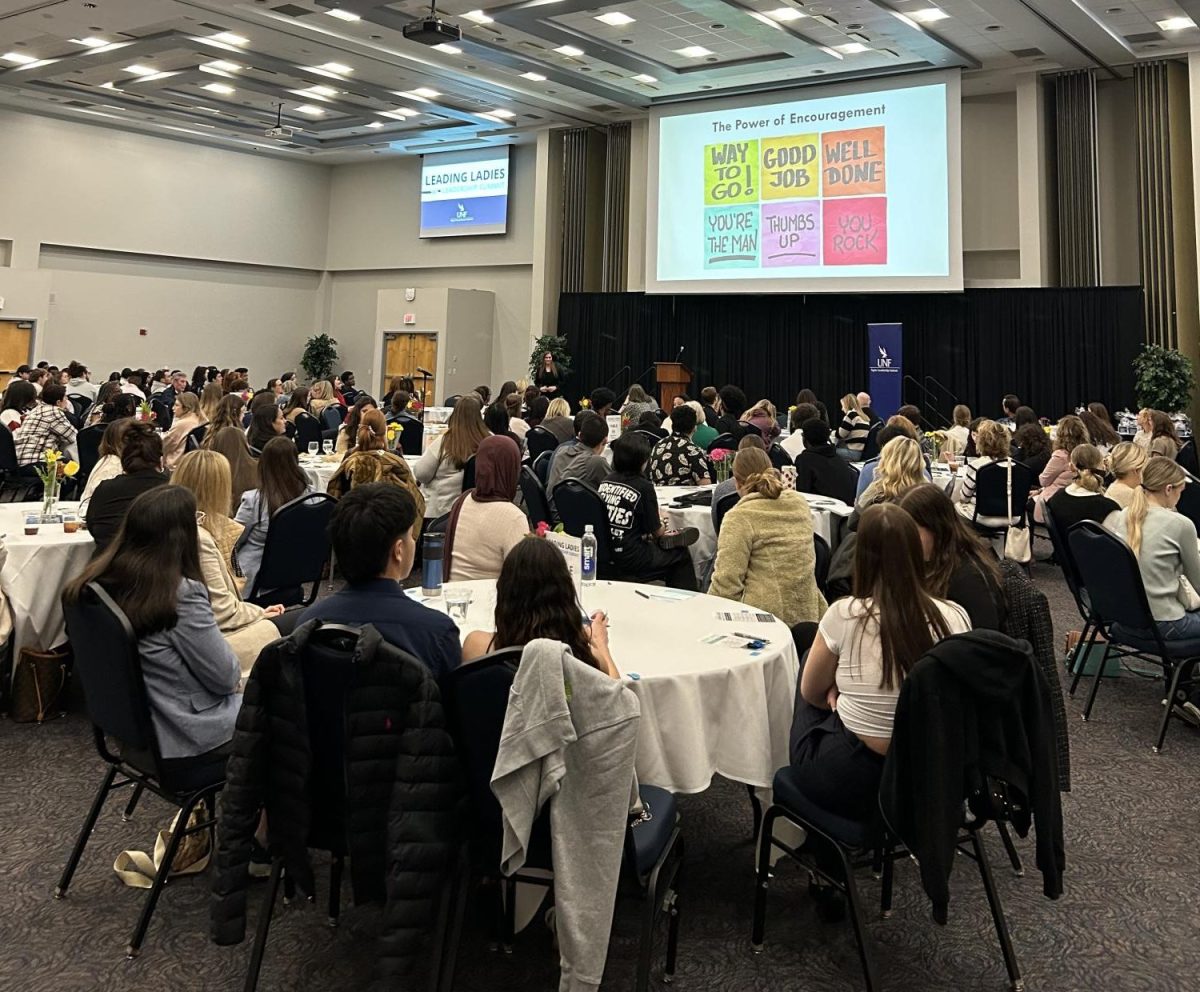Agent Orange is a herbicide that was used during the Vietnam War to clear out vegetation, as stated in the article announcing the Agent Orange Town Hall event. Unfortunately, this herbicide had health risks that almost no one saw coming.
After attending the Agent Orange Town Hall and meeting, I realized this issue was bigger than it got credit for. The room was filled (and I mean to the brim) with Vietnam veterans and their family members. Every single one of these veterans suffered some sort of health issue on Agent Orange’s behalf. I’d imagine every Agent Orange Town Hall meeting is equally as packed in other cities, too.
We began the meeting by standing for the pledge and prayer, introduced by Bob Buehn. After that, no time was wasted and we instantly watched a video explaining the ins-and-outs of the herbicide, the video can be seen here. The video explains that Agent Orange contains a dangerous chemical, called “Dioxin”, that is known to cause cancer, heart disease, miscarriages and skin diseases. It was also explained that the exposure to Agent Orange can be multi generational. So, not only have the veterans in the room suffered health issues, so have some of their children and grandchildren.
Once the video ended, the main speaker, Tony D’Aleo, introduced himself. D’Aleo is a veteran that was exposed to Agent Orange with his squad. He later stated that 13 men from his squad had been killed by cancer due to Agent Orange. Even D’Aleo himself has fought cancer three times.
Now, one underlying theme throughout the meeting was the Veteran Affairs, also known as the “VA”. The VA provides veterans with their health services at specified clinics. The VA seemed to make a few veterans pretty unhappy, and D’Aleo especially wasn’t fond of it.
Here is what he had to say about the VA in regards to Agent Orange benefits:
“If you drank water in Vietnam…If you ate food in the local villages in Vietnam…You’re eligible for benefits…Because they poisoned us…We were poisoned by them, and they don’t give a lick about us…So you guys have to be smart enough to start these claims, I can’t do it…You have to do it.”
What I noticed, was that over half of the room actually struggled with receiving help from the VA in regards to their health issues caused by the herbicide. While there is free exposure testing, and benefits for certain cancers and heart diseases caused by Agent Orange, there was also a lot of people with medical issues that weren’t covered. No one in the room was happy about this, and when it came time for the panel, questions about the issue came flooding in.
The panel was being ran by five people: Shanika Hall, who provided information on getting registered with the VA, Marc McCabe, who served in the core for 27 years, Dr. W. Patrick Monaghan, who’s been battling cancer for the past two years, Mokie Porter, who had taken 20 trips to Vietnam, and Nancy Switzer, who runs a blog with Porter on the issue.
Everyone running the panel had some sort of experience with Agent Orange as well, and wanted to help anyone they could who was suffering with similar issues. During the panel however, I realized almost everyone had the same questions. They, or their children, had a medical issue that the VA wouldn’t cover…So what should they do? In response, almost every panel member would answer with “file a claim.”
“File a claim…There’s resources. If you need help, tell me.” said McCabe.
Some diseases and medical issues that Agent Orange has been known to cause are: Lymphoma, diabetes, liver disease, prostate cancer, respiratory issues, soft-tissue sarcoma, bladder cancer and even spina bifida of the off-spring. Sadly, not all of this is covered by the VA, and in return veterans have to file claims to the Va about themselves, their children and their grandchildren.
If you, or any of your loved ones has been exposed to Agent Orange, you can visit http://agentorangezone.blogspot.com/ for more information. If your father or grandfather were Vietnam veterans, you could have health risks as well.
D’Aleo ended the meeting by honoring all of the veterans and giving them pins for their service.
“If you don’t get off your butt and file a claim…Don’t expect anyone to help you.” said D’Aleo.
__
For more information or news tips, or if you see an error in this story or have any compliments or concerns, contact editor@unfspinnaker.com.
















Dennis LaBandt | Jun 17, 2020 at 10:56 am
How should I prepare to file a claim with the VA if conditions for a claim come up. I have had one cancer issue which came up a year ago and was found by my dermatologist and removed. I go for wellness exams yearly to a provider because there are guys needing BA services more than I. I do not have a VA card. Dennis LaBandt, US Army, Vietnam, 67-68
George Delorme | Jun 17, 2020 at 2:00 am
My husband died in2007 . He was 100 percent disabled by the va for PTSD. He filed for agent orange due to his type 2 diabetes and was turned down x 2. He had another claim pending when he died. I never received any kind of answer. Or rejection. When I tried to find out anything I was told basically “too bad he died”. I have since found out that was bull. They tell you anything. I want this claim reopened asap. I am not getting any younger and I am doing what I am sure he would want. His blood sugar had dropped very low and I was at work and came home to find him dead. He had lots of proof he was on the USS Enterprise . The VA has all his records which I would gladly sign for them to obtain.